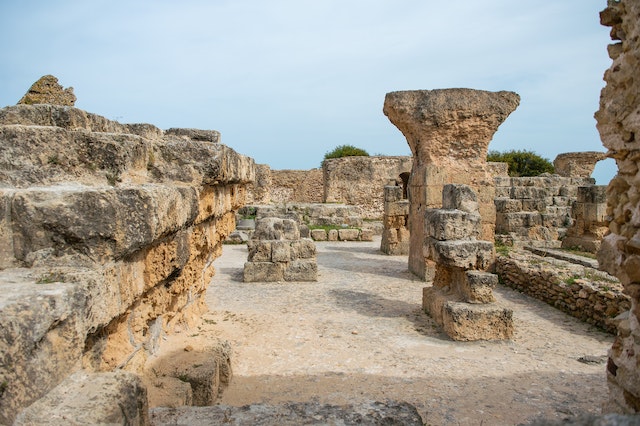
Too busy to read? Watch on YouTube.
When did archaeology start? Archaeology started as a discipline in the 18th century.
Before the beginning of archaeology as a discipline, there were two types of people that were interested in things from past civilizations. Those were people who liked to collect artifacts, and people who wanted the artifacts for their precious metals. The pyramids and tombs in ancient Egypt are a good example of the latter. The pharaohs and wealthy people buried in these tombs were usually buried with a lot of wealth. The tomb of Tutankhamun has a huge amount of gold. The contents of the tomb are insured for $26 million today and the gold in the solid gold coffin alone is worth close to $2 million. These prices are obviously modern values, but they show how much gold and other valuable items were in those tombs. They tried to protect the tombs, but often people who were charged with protecting them were also responsible for looting them. There were also laws in ancient Egypt forbidding the sale of looted artifacts, but people melted them down for the gold and just used that to pay for things. That is why almost all of the tombs we find are empty. Tutankhamun’s tomb was an exception because it was accidentally buried, and nobody knew where it was.
Despite this, there were some people who appreciated artifacts for the providence. Khaemweset, one of the sons of Ramesses II was interested in the past of Egypt. He lived in approximately the 13th century BC, and he did a lot of work to restore ancient Egyptian monuments. Even by his day, some of those were two thousand or more years old. Thanks to his efforts, he is known as the first Egyptologist, but he wouldn’t be called an archaeologist.
The title of first archaeologist goes to Nabonidus, who was a king of the Babylonian Empire in about 550 BC. He was looking for the foundation stone of a building dedicated to Naram Sim, a ruler of the Akkadian Empire from about 2254 BC. Nabonidus wanted to build a new temple and he thought it would be better if he could build it on the foundations of the old temple. He led an archaeological dig to find the stone, and when he did, he attempted to date it. There are other examples of Nabonidus excavating buildings and being interested in history. He attempted to date several things and he wrote about their histories.
The Greeks were interested in history and some of the first history books were written by the Greek historian Herodotus. He was interested in collecting artifacts as well. It is probably true that for most of history, the large majority of people were more concerned with day-to-day life than archaeology and history. The educated minority and the wealthy may have had an interest, but there doesn’t seem to be much evidence of archaeology. The Romans liked to have antiquities in their palaces, and they took several obelisks from Egypt to Rome, but that may have been more a display of power than an attempt to preserve history.
Archaeology as a discipline evolved from antiquarianism. Towards the end of the Middle Ages, people in Europe began to develop an interest in ancient Greek and Roman history. There was a growing fashion for finding and collecting antiquities. People also visited ancient cities with an eye to their history. Yet, as before, the majority of people were more involved in everyday life than in history.
Everything began to change in the 18th century because of several causes that are all interrelated. The catalyst was the Industrial Revolution. When England industrialized, people moved into the cities and life began to change. Schools appeared to educate the people living in the cities and a new working class appeared. Britain had more wealth due to these changes and this allowed her to explore more and colonize more countries. This brought about an interest in other countries and more of an interest in the history of those countries. It also created a strong sense of nationalism. As other countries in Europe industrialized, they expanded their colonies and became more nationalistic. This sense of nationalism had a big impact on the history of archaeology because bringing artifacts back from those countries became a source of pride and almost a competition. National museums (such as the British Museum) began to appear and the number of artifacts they looked after became a way of boasting and showing off a country’s power. To go along with this, a new generation of historians, archaeologists, and treasure hunters appeared. The word archaeology appeared in English in 1604, but it referred to a historian. It took on its modern sense in the early 19th century when artifact hunting took off. That being said, there was an enormous growth in scientific research and a desire for understanding that went alongside this nationalism. Not everybody was in it for the sake of their country. The quest for knowledge became a significant motivation as well. And this is what I learned today.
https://www.etymonline.com/word/archaeology
Sources
https://www.environmentalscience.org/archaeology
https://en.wikipedia.org/wiki/History_of_archaeology
https://science.howstuffworks.com/environmental/earth/archaeology/archaeology1.htm
https://www.thoughtco.com/the-first-archaeologists-167134
https://www.worldhistory.org/article/1095/tomb-robbing-in-ancient-egypt/
